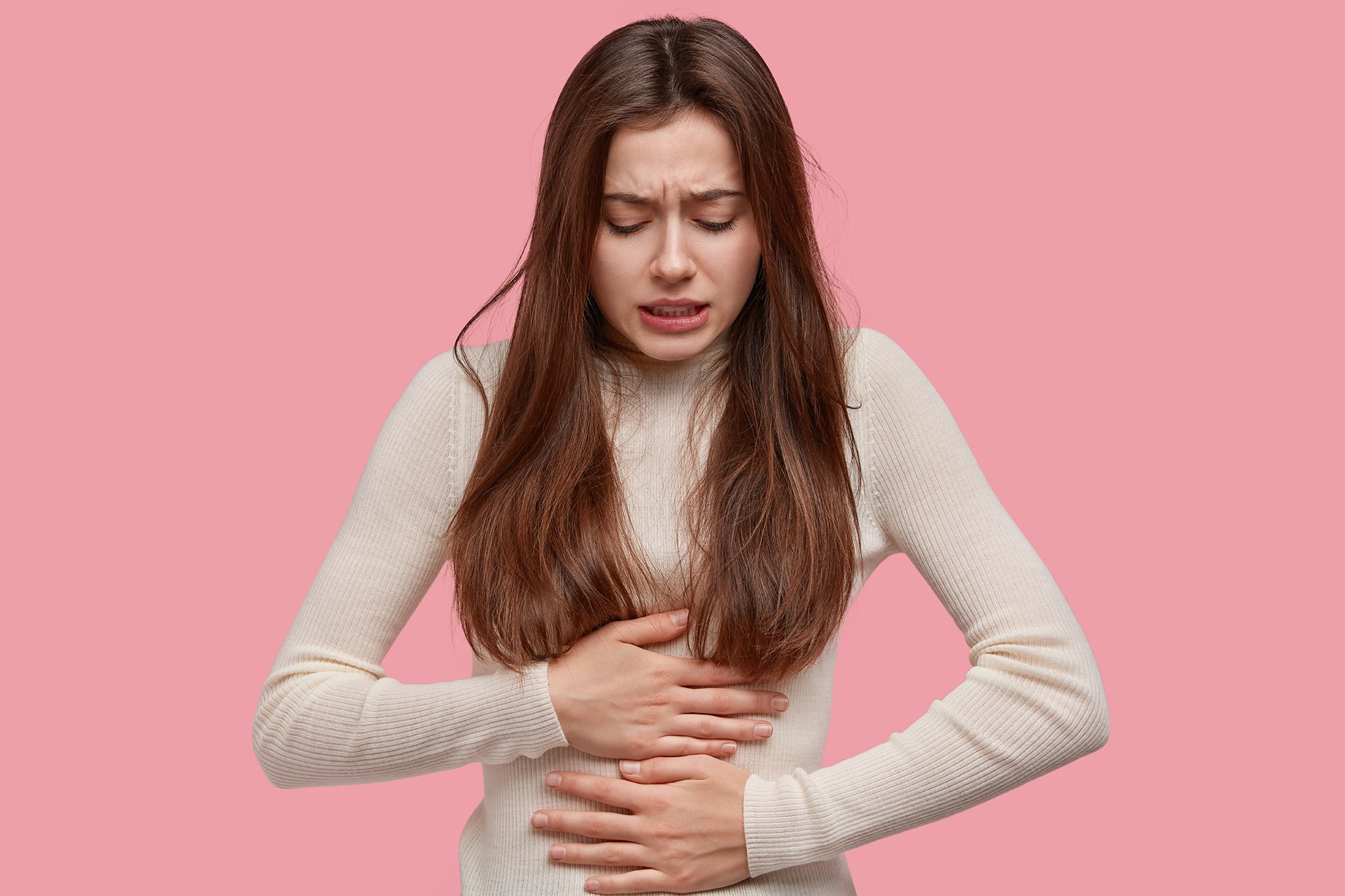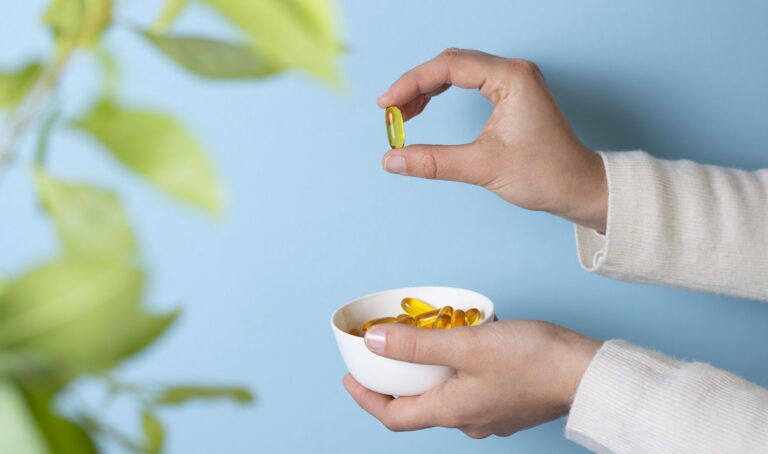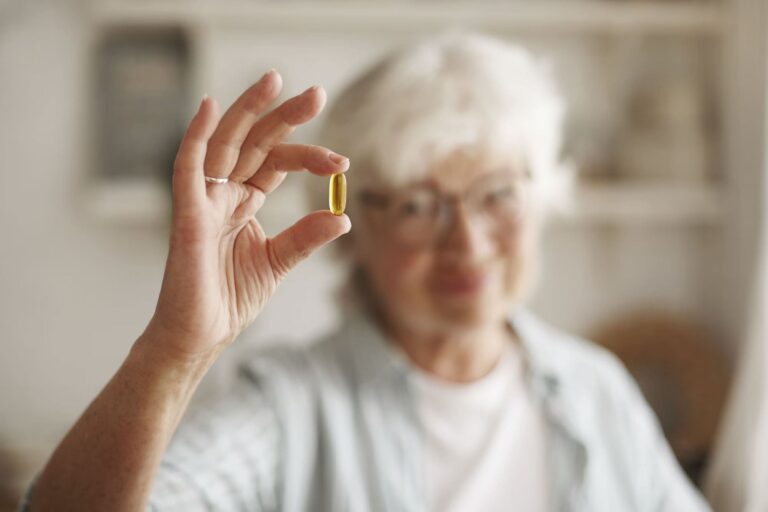Premenstrual Syndrome (PMS) is a common condition that affects many menstruating individuals. It refers to a combination of physical, emotional, and psychological symptoms that occur in the days or weeks leading up to menstruation. PMS can range from mild to severe, and its symptoms can vary from person to person.
In this comprehensive guide, we will delve into the intricacies of PMS, exploring its symptoms, causes, and the role of important vitamins in managing and alleviating its effects.
Understanding Premenstrual Syndrome (PMS)
PMS is characterized by a wide range of symptoms that can manifest in the luteal phase of the menstrual cycle, which occurs after ovulation and before menstruation. Symptoms typically begin to appear one to two weeks before menstruation and usually improve once menstruation starts. Common PMS symptoms include:
Physical Symptoms
- Breast tenderness or swelling
- Bloating and fluid retention
- Headaches or migraines
- Fatigue and changes in sleep patterns
Emotional Symptoms
- Mood swings
- Irritability or anger
- Anxiety or tension
- Depression or feelings of sadness
Psychological Symptoms
- Difficulty concentrating
- Changes in appetite or food cravings
- Decreased libido

Causes of PMS
The exact cause of PMS is not fully understood, but it is believed to be related to the hormonal fluctuations that occur during the menstrual cycle. Changes in estrogen and progesterone levels can impact brain chemicals, such as serotonin, which plays a role in mood regulation.
Additionally, PMS may be influenced by lifestyle factors, genetics, and individual sensitivity to hormonal changes.
The Role of Important Vitamins in Managing PMS
While there is no cure for PMS, certain vitamins and minerals have been shown to play a role in managing and alleviating its symptoms. Including these important nutrients in the diet can be beneficial for individuals experiencing PMS. Let’s explore some of the key vitamins that may help with PMS symptom relief:
Vitamin B6 (Pyridoxine):
Vitamin B6 is involved in the production of neurotransmitters, such as serotonin, which can impact mood and emotional well-being. Studies have suggested that vitamin B6 supplementation may help reduce the severity of PMS symptoms, particularly mood swings, irritability, and depression.
Food sources of vitamin B6 include:
- Chickpeas and lentils
- Bananas
- Salmon and tuna
- Potatoes and sweet potatoes
Calcium:
Calcium is essential for muscle function, and research has indicated that calcium supplementation may help reduce symptoms of PMS, including bloating and mood swings. It is believed that calcium helps regulate hormone levels and alleviate some of the discomfort associated with PMS.
Food sources of calcium include:
- Dairy products (milk, yogurt, cheese)
- Leafy greens (kale, broccoli, spinach)
- Fortified plant-based milk (soy milk, almond milk)
Magnesium:
Magnesium is a mineral that supports various bodily functions, including muscle relaxation and mood regulation. Some studies suggest that magnesium supplementation may help reduce PMS symptoms, particularly bloating, breast tenderness, and irritability.
Food sources of magnesium include:
- Nuts and seeds (almonds, pumpkin seeds)
- Whole grains (brown rice, quinoa)
- Legumes (black beans, lentils)
Vitamin E:
Vitamin E is an antioxidant that may help alleviate symptoms of PMS, such as breast tenderness and headaches. Its antioxidant properties may also contribute to reducing inflammation and supporting overall well-being during the menstrual cycle.
Food sources of vitamin E include:
- Sunflower seeds and almonds
- Spinach and kale
- Avocado and butternut squash
Vitamin D:
Vitamin D is crucial for maintaining bone health and immune function. Some studies have suggested a possible link between vitamin D deficiency and an increased risk of PMS. Ensuring sufficient vitamin D levels may help support overall health and potentially alleviate PMS symptoms.
Food sources of vitamin D include:
- Fatty fish (salmon, mackerel)
- Fortified foods (fortified milk, orange juice)
- Sun exposure (the body can produce vitamin D when exposed to sunlight)
Omega-3 Fatty Acids:
Omega-3 fatty acids, particularly EPA and DHA, have anti-inflammatory properties and are important for brain health and mood regulation. Some studies have shown that omega-3 supplementation may help reduce emotional symptoms of PMS, such as mood swings and irritability.
Food sources of omega-3 fatty acids include:
- Fatty fish (salmon, mackerel, sardines)
- Flaxseeds and chia seeds
- Walnuts
Incorporating these important vitamins and nutrients into the diet can be a valuable strategy for managing PMS symptoms. However, it’s important to remember that individual responses to supplementation may vary, and it’s best to consult with a healthcare professional before starting any new supplements.

Lifestyle Strategies for Managing PMS
In addition to incorporating important vitamins into the diet, lifestyle strategies can also play a significant role in managing PMS symptoms. Consider implementing the following practices:
- Regular Exercise: Regular physical activity can help alleviate PMS symptoms by promoting relaxation, improving mood, and reducing stress. Activities like walking, yoga, or swimming can be beneficial.
- Stress Management: Stress can exacerbate PMS symptoms, so finding effective stress management techniques, such as meditation, deep breathing, or spending time in nature, can be helpful.
- Balanced Diet: Maintaining a balanced diet with a focus on whole foods, fruits, vegetables, and lean proteins can support overall well-being during the menstrual cycle.
- Adequate Sleep: Getting enough restful sleep is essential for managing PMS symptoms and supporting overall health. Aim for 7-9 hours of sleep per night.
- Limit Caffeine and Alcohol: Reducing caffeine and alcohol intake may help alleviate symptoms like anxiety, irritability, and breast tenderness.
- Keep a Symptom Diary: Keeping track of PMS symptoms and their severity can help identify patterns and potential triggers, allowing for better symptom management.
Conclusion
Premenstrual Syndrome (PMS) is a common condition that can cause a range of physical, emotional, and psychological symptoms in menstruating individuals. While there is no cure for PMS, incorporating important vitamins and nutrients into the diet can play a role in managing and alleviating its effects.
Vitamins B6, calcium, magnesium, vitamin E, vitamin D, and omega-3 fatty acids are particularly important for supporting overall well-being during the menstrual cycle.
Alongside supplementing with these vitamins, adopting lifestyle strategies such as regular exercise, stress management, balanced nutrition, adequate sleep, and limiting caffeine and alcohol can also contribute to better PMS symptom management.
Remember to consult with a healthcare professional before starting any new supplements and to personalize your approach to managing PMS based on your unique needs and preferences.
Embrace a holistic approach to supporting your well-being during the menstrual cycle, and navigate the waters of PMS with confidence and care. By prioritizing self-care and nurturing your body with essential nutrients, you can create a foundation for improved well-being and vitality throughout the entire month.







